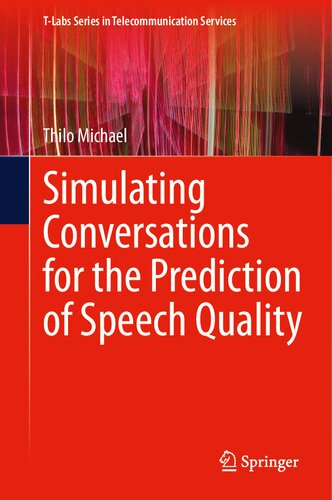

Most ebook files are in PDF format, so you can easily read them using various software such as Foxit Reader or directly on the Google Chrome browser.
Some ebook files are released by publishers in other formats such as .awz, .mobi, .epub, .fb2, etc. You may need to install specific software to read these formats on mobile/PC, such as Calibre.
Please read the tutorial at this link: https://ebookbell.com/faq
We offer FREE conversion to the popular formats you request; however, this may take some time. Therefore, right after payment, please email us, and we will try to provide the service as quickly as possible.
For some exceptional file formats or broken links (if any), please refrain from opening any disputes. Instead, email us first, and we will try to assist within a maximum of 6 hours.
EbookBell Team

5.0
88 reviewsThis book discusses the simulation of conversations through a novel approach of predicting speech quality based on the interactions of two simulated interlocutors. The author describes the setup of a simulation environment that is capable of simulating human dialogue on the speech level. The impact of delay and bursty packet loss on VoIP conversations is investigated and modeled for the use in the simulation. Based on parameters extracted from simulated conversations, the author proposes extensions to the E-model, a parametric model standardized by the International Telecommunications Union, in order to predict the quality of the simulated conversations. The author shows that predictions based on the simulated conversations outperform models that rely on the transmission parameters alone.